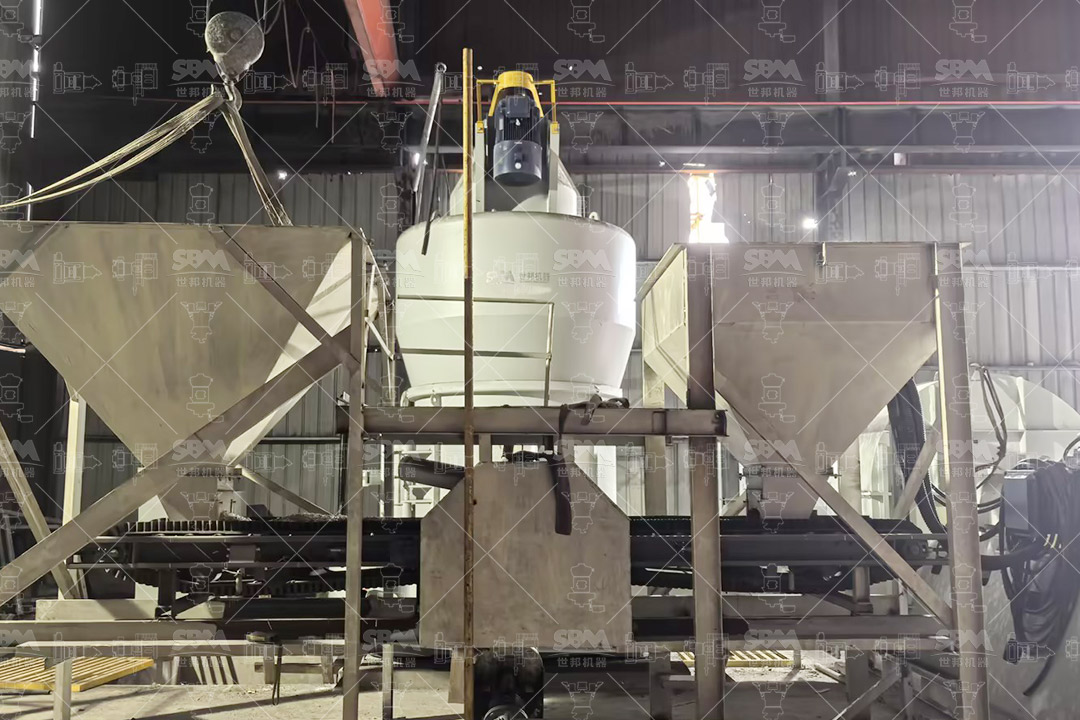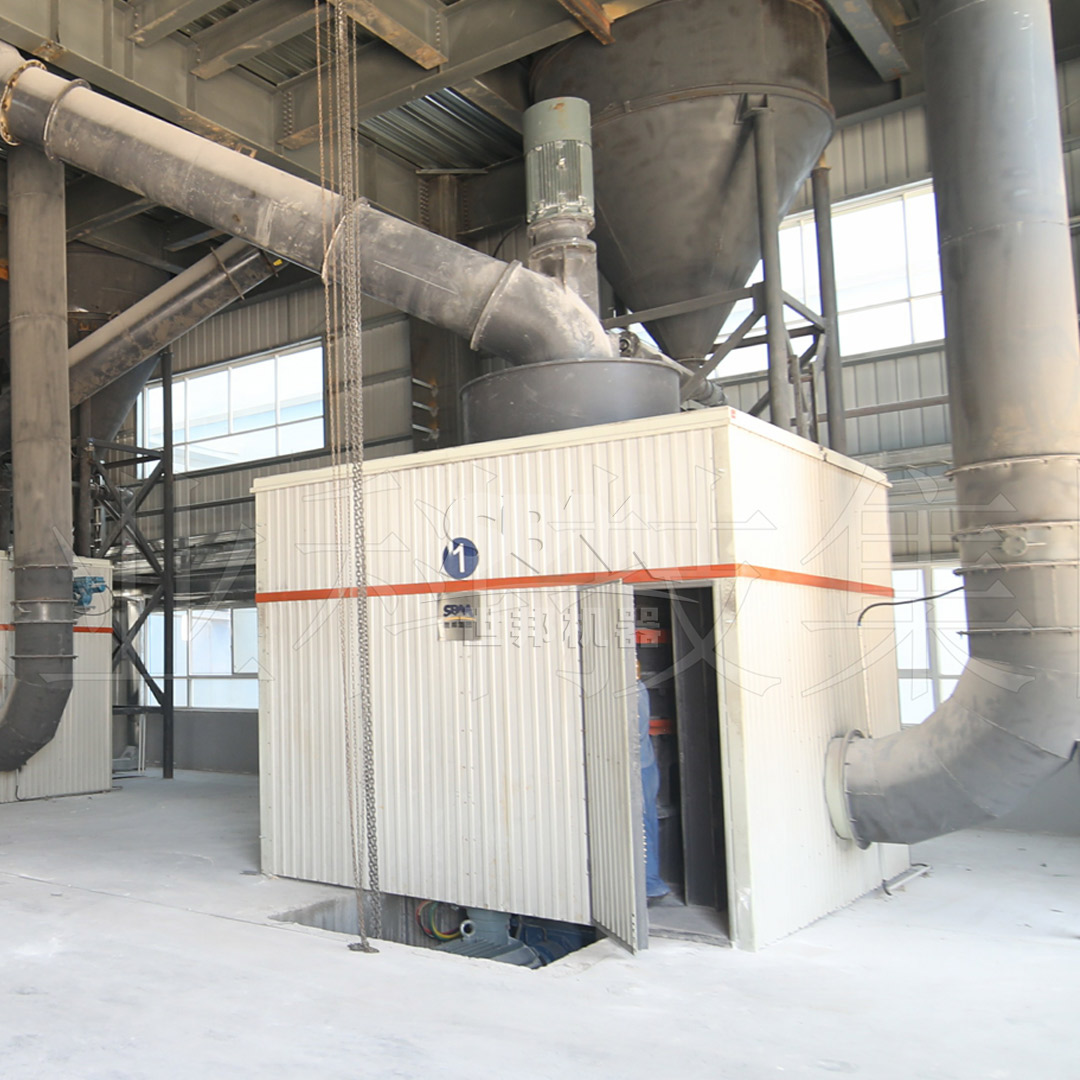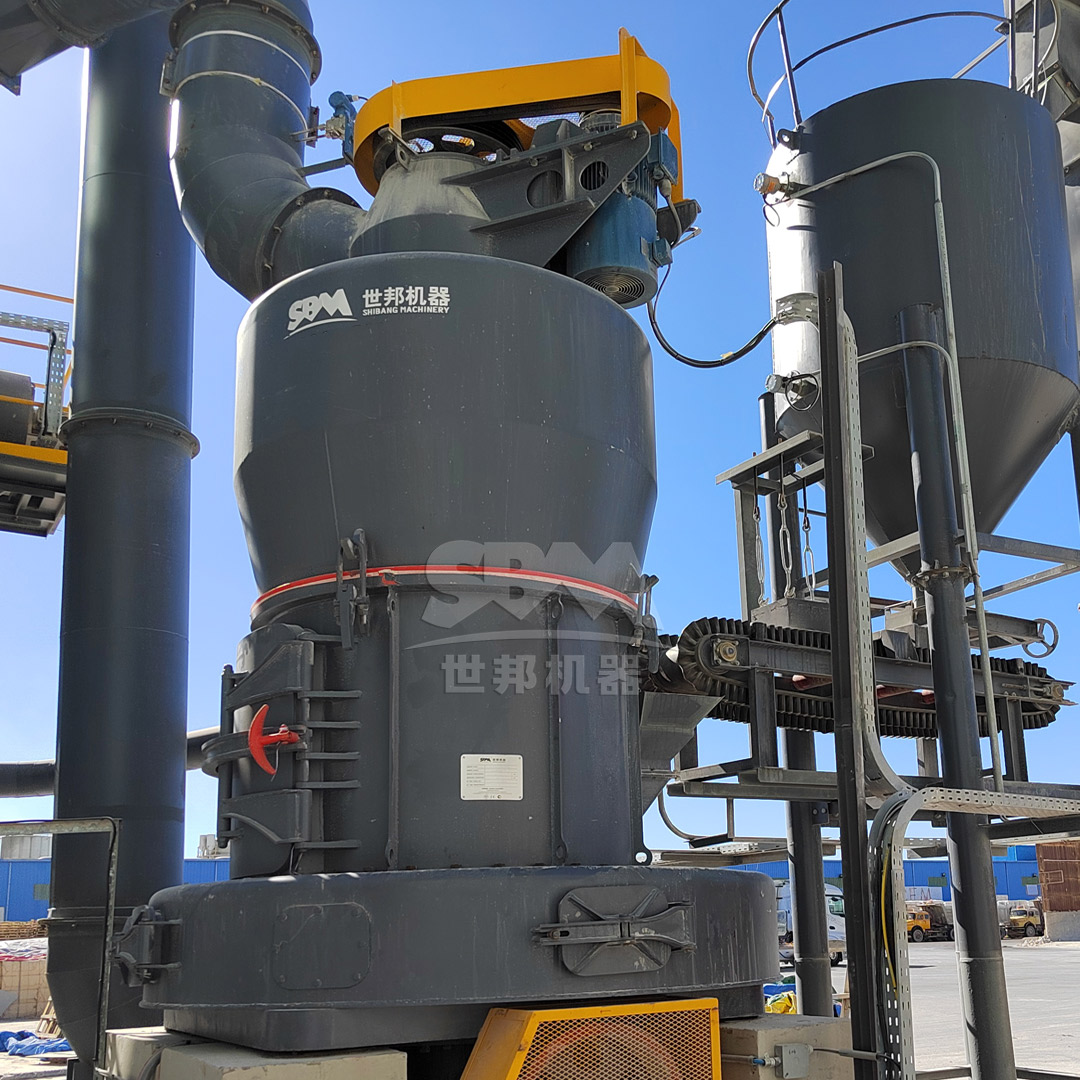Gypsum powder is a vital raw material in construction, used for drywall, plaster, and cement production. This guide explores the complete production line process, focusing on advanced grinding technologies to achieve high-quality gypsum powder with optimal particle size distribution.

The production begins with gypsum ore crushing. Primary jaw crushers reduce large chunks to ≤50mm particles, followed by secondary hammer mills for further size reduction to ≤20mm.
| Equipment | Input Size | Output Size | Capacity |
|---|---|---|---|
| Jaw Crusher | ≤500mm | ≤50mm | 50-450t/h |
| Hammer Mill | ≤50mm | ≤20mm | 15-70t/h |
Crushed gypsum enters rotary kilns at 150-180°C to remove crystalline water (CaSO₄·2H₂O → CaSO₄·0.5H₂O). Modern systems achieve 98% dehydration efficiency with heat recovery.
For high-value applications requiring 325-2500 mesh (5-45μm) powder, our SCM Ultrafine Mill delivers exceptional performance:

| Model | Capacity (t/h) | Power (kW) | Fineness (mesh) |
|---|---|---|---|
| SCM800 | 0.5-4.5 | 75 | 325-2500 |
| SCM1680 | 5.0-25 | 315 | 325-2500 |
For large-scale production (3-45t/h) of construction-grade gypsum (30-325 mesh), the MTW Trapezium Mill offers:
Laser diffraction analyzers monitor D50/D97 values in real-time, with automatic feedback to grinding systems for consistency.
Infrared moisture meters maintain ≤0.5% residual water content through closed-loop drying adjustments.

Modern gypsum powder production requires integrated solutions from crushing to precision grinding. Our SCM Ultrafine Mill and MTW Trapezium Mill provide complete size reduction options for all construction material specifications, combining German engineering with robust performance.